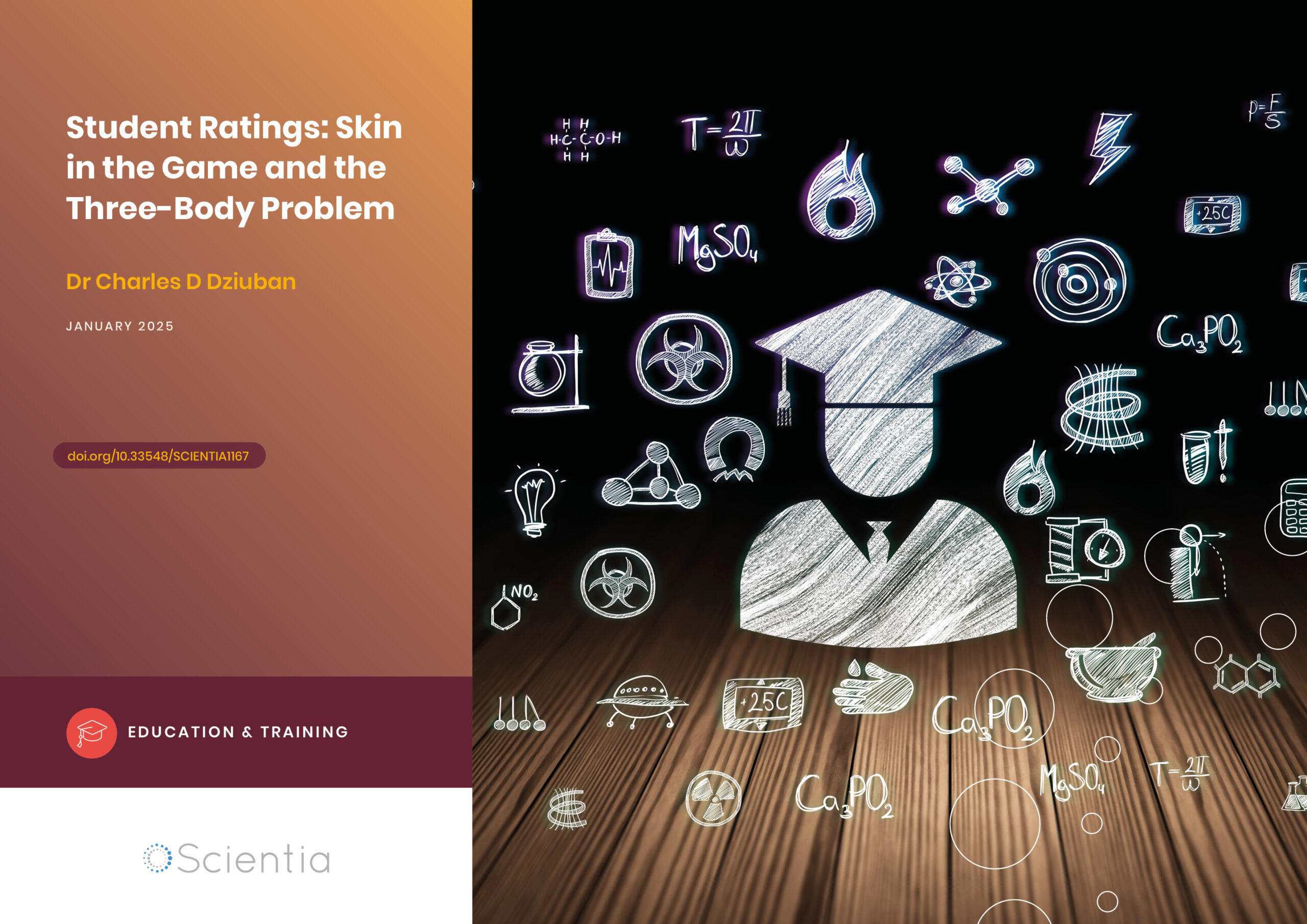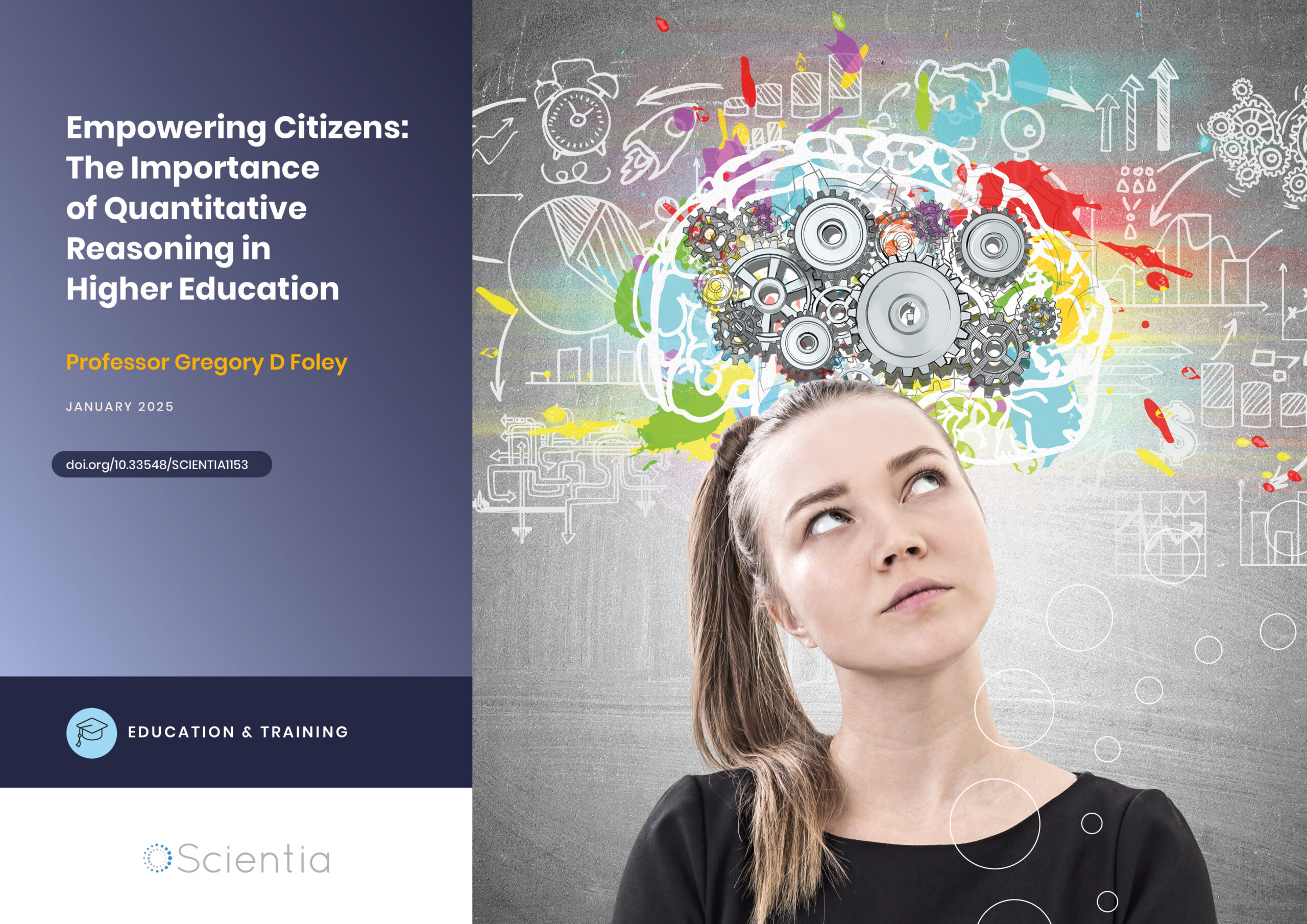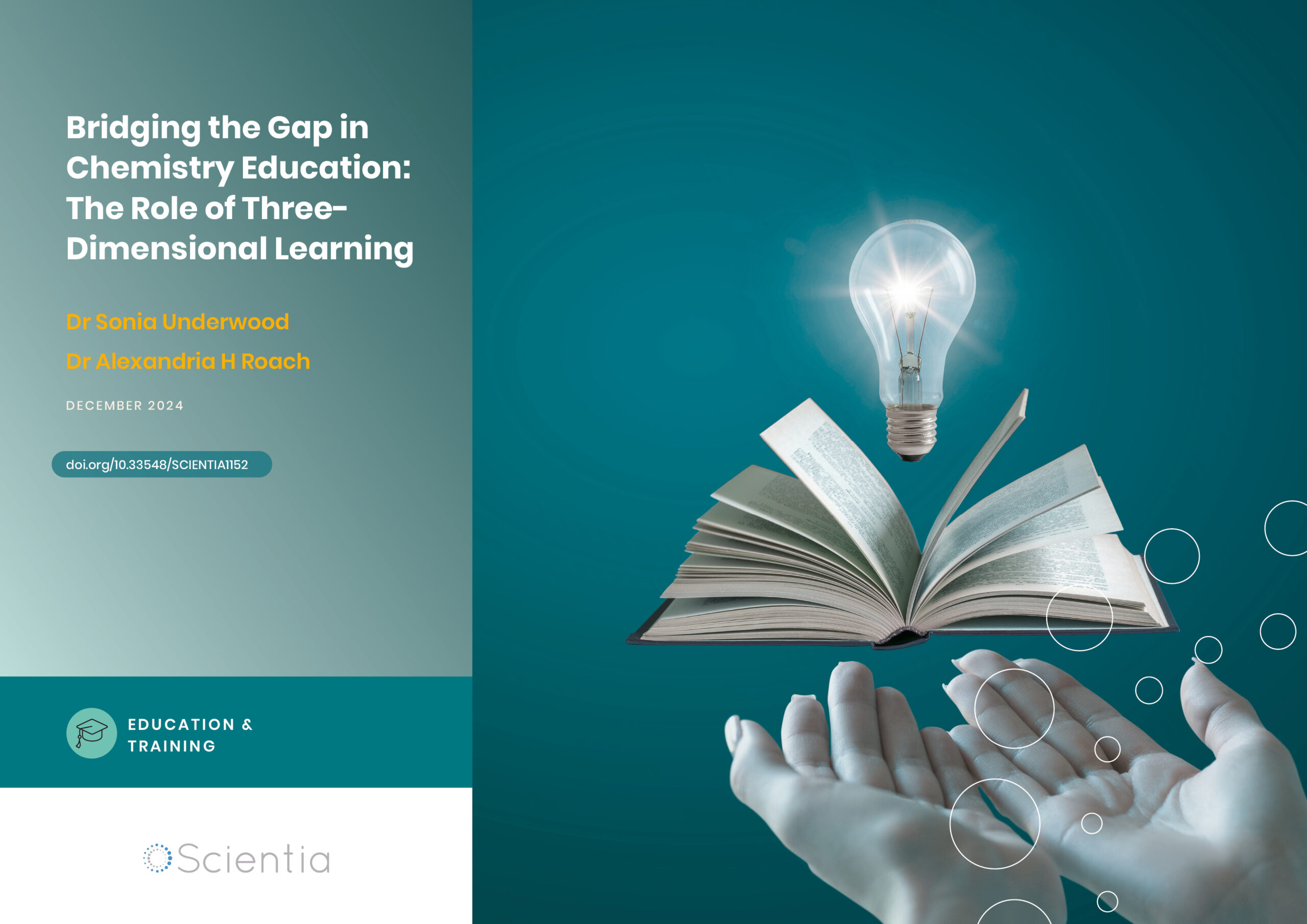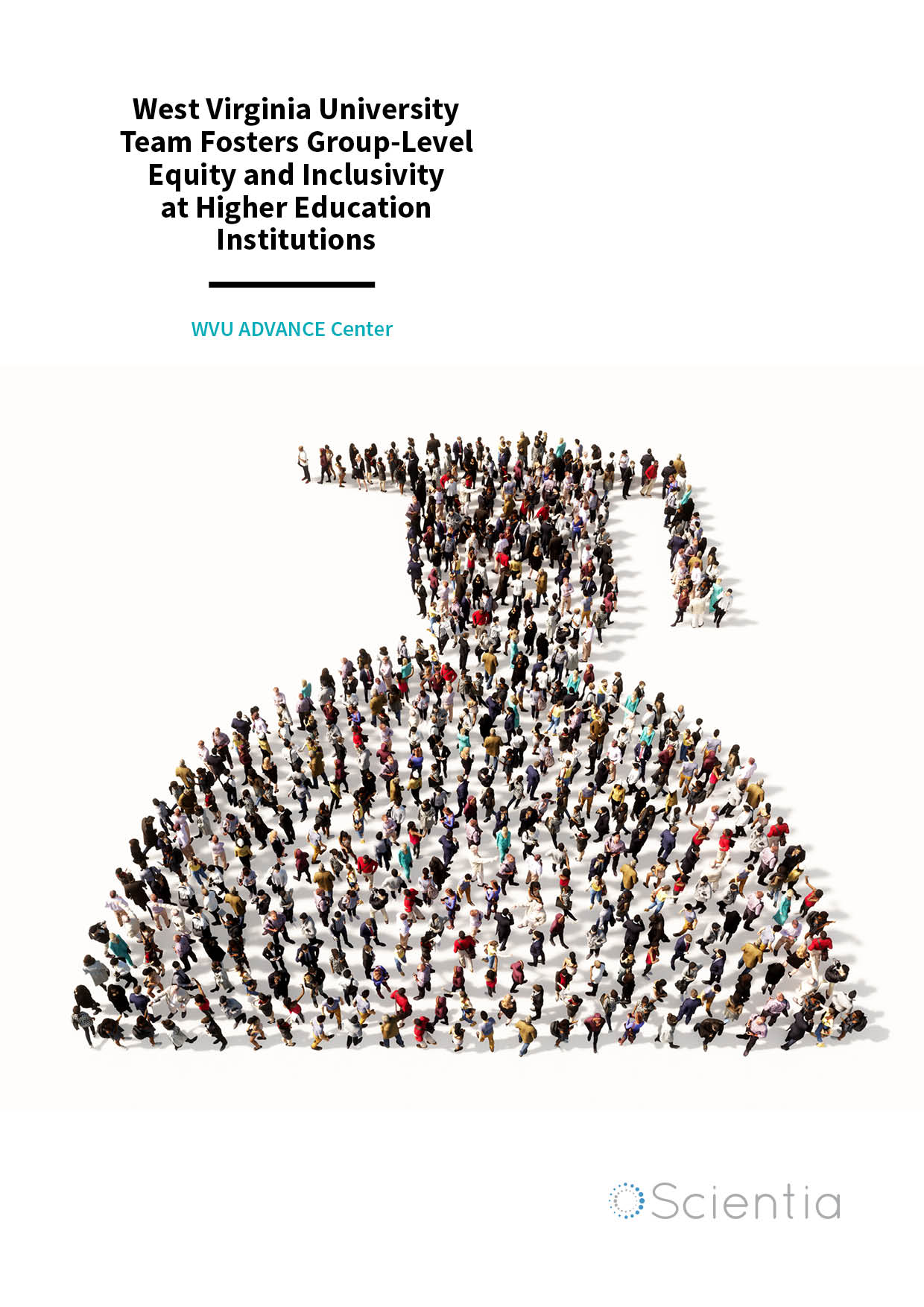Education & Training

The BASIL CURE Initiative: Transforming How Students Learn Biochemistry Through Real Research
Teaching students how to think like scientists is a critical but challenging goal in biochemistry education. The Biochemistry Authentic Scientific Inquiry Lab (BASIL) initiative was conceived by Dr Paul Craig from the Rochester Institute of Technology and is led by colleagues across multiple institutions. They have developed an innovative curriculum that transforms traditional cookbook-style laboratory courses into authentic research experiences, also known as a Course-based Undergraduate Research Experience (CURE). By investigating real proteins with unknown functions, students learn essential scientific skills while expanding our knowledge of protein biochemistry.

Professor Jean-Anne Stewart | Making Virtual Action Learning Effective for Leadership Development
New research shows that virtual action learning can be just as beneficial as face-to-face sessions for developing leadership skills, when implemented thoughtfully. A UK study of over 300 senior leaders by Professor Jean-Anne Stewart of Henley Business School at the University of Reading found that with proper facilitation, virtual action learning enabled valuable peer support, actions and reflection time, even during the challenges of the COVID-19 pandemic.

Dr Charles Dziuban | Student Ratings: Skin in the Game and the Three-Body Problem
An ongoing concern in higher education is how to include the student voice in teaching. Dr Charles Dziuban has dedicated much of his career to examining student and faculty outcomes as well as gauging the impact of online, blended and lecture capture courses in universities in an effort to improve the educational experience for students. On the basis of his work, he now presents a model for effective teaching and evaluation based on capturing the student voice.

Professor Gregory D Foley | Empowering Citizens: The Importance of Quantitative Reasoning in Higher Education
Despite a growing emphasis on Quantitative Reasoning in education, particularly as universities develop courses that move beyond traditional math, its role in fostering critical citizenship remains underexplored. Professor Gregory D Foley’s research studies the perspectives of instructors on teaching Quantitative Reasoning at university and examines how these courses can promote critical citizenship. By evaluating practical teaching approaches, the study highlights the evolving role of quantitative reasoning in preparing students for thoughtful civic participation.

Dr Sonia Underwood | Bridging the Gap in Chemistry Education: The Role of Three-Dimensional Learning
Understanding complex concepts in chemistry can be challenging for students, especially in large classes where individualised attention is limited. Traditional multiple-choice questions often focus on rote memorisation rather than deep understanding. Dr Sonia Underwood and colleagues at Michigan State University, Grand Valley State University, and Kansas State University, as part of the 3DL4US project, have developed a novel approach to create multiple-choice questions aligning with three-dimensional learning principles. This collaboration brings together a wealth of expertise and perspectives of chemistry, biology, and physics faculty who encourage students to engage with material deeper, promoting better comprehension and retention of core concepts.

Dr Aimie Brennan | Challenging the Changing Landscape of Initial Teacher Education
Initial teacher education in Ireland was reconceptualised in 2011 to embody a more practical, solution-based ethos in place of the traditional emphasis on foundational subjects such as sociology. Dr Aimie Brennan of the Marino Institute of Education and Dr Angela Canny of Mary Immaculate College undertook research to better understand the impact of these changes on the perspectives of students in the final year of initial teacher education.

Michael Y Schakelaar | Hybrid PhDs: Integrating Biomedical and Educational Research
Biomedical science-based PhDs are often research-focused, designed to hone a candidate’s expertise in a specific field. However, subsequent careers in university settings frequently entail substantial teaching responsibilities, with PhD graduates unprepared for the dual roles of researcher and educator. Hybrid PhDs aim to better equip graduates for academic careers by integrating highly specialised scientific knowledge with educational research. PhD candidate Michael Y Schakelaar of University Medical Center Utrecht (Utrecht University), The Netherlands, provides an outstanding example of how this can be achieved.

Dr Alexandra Babino | Bilingual Education: Nurturing Language Skills and Cultural Identity in Latino Students
Bilingual education programmes aim to help students develop proficiency in multiple languages while learning grade-level content. However, the reality is often more complex, especially for Latino students navigating between Spanish and English in the USA. Dr Alexandra Babino from Texas Woman’s University explores how these students develop their language skills and identities in bilingual educational settings. Her research provides valuable insights to help educators nurture students’ multilingual abilities and cultural connections.

Dr Jo Boaler | Transforming Mathematics Education Through Mindset-Based Teaching
Mathematics education in the United States has long struggled with issues of underachievement and inequity. Despite decades of reform efforts, many students continue to struggle with math, developing negative attitudes and beliefs about their own mathematical abilities. However, recent research into mindset and brain plasticity offers promising new directions for transforming how mathematics is taught and learned. A groundbreaking study led by Dr Jo Boaler at Stanford University demonstrates how a ‘mathematical mindset’ approach to teaching can dramatically improve student achievement and engagement, even in just a few weeks of instruction.

Dr Kimberly Coy | Virtual Schooling: How Digital Education Can Increase Inclusivity
Virtual schooling – teaching conducted entirely online – has become increasingly important since the COVID-19 pandemic. Even prior to the pandemic, virtual schools were recognised for providing alternatives to students with needs beyond those catered for in traditional classroom settings. While research into the factors influencing the success of virtual schools is lacking, Dr Kimberly Coy of California State University, Fresno, is working to address this knowledge gap. She is particularly interested in the challenges facing the application of digital learning and strategies that may overcome these.

Dr. Pheather R. Harris | Interrogating Environmental Factors that Negatively Impact African American Student STEM Degree Completion
Understanding why African American students often leave science, technology, engineering, and mathematics (STEM) degree programs – and working to solve this – is crucial. Dr. Pheather R. Harris at the University of California, Irvine, has demonstrated that intentional mentorship from professors can significantly boost their chances of remaining in the programme and graduating. Her work highlights the urgent need for universities to create inclusive environments where African American students feel supported to achieve success in STEM fields.

WVU ADVANCE Center | West Virginia University Team Fosters Group-Level Equity and Inclusivity at Higher Education Institutions
Despite ongoing efforts to broaden participation in the academy, many groups remain underrepresented. More needs to be done to ensure that all faculty and students succeed in institutions of higher education. The WVU ADVANCE Center is an academic hub at West Virginia University, which provides services, events, mentorship opportunities, and other initiatives that promote the sense of belonging that leads to thriving faculty and students.

Dr Anushia Inthiran | Distance Learning: Impacts for Offshore Students Amid COVID-19
The COVID-19 pandemic significantly disrupted global education and necessitated a shift to online learning. Due to ongoing border closures, even after the pandemic eased, offshore students were prevented from attending their university in person long after their local peers, impacting their learning ability and future perspectives. Dr Anushia Inthiran from the University of Canterbury conducted a survey among a group of offshore students to understand the consequences of distance learning on their education.

Professor Lori Hensley – Professor Nathan Reyna | Driving Innovation in Cell Biology Education: The Cell Biology Education Consortium
Cell biology is the foundation of several branches of science and medicine. An education in cell biology theory and techniques gives students the grounding to pursue careers in healthcare, research, and the pharmaceutical industry, as well as providing a background in ethics, science communication and critical thinking. Unfortunately, undergraduate-level education in cell biology is often prescriptive and limited. The Cell Biology Education Consortium, founded by Professors Lori Hensley and Nathan Reyna from Jacksonville State and Ouachita Baptist Universities, respectively, offers a novel approach in which students engage in authentic research and provides extensive resources to support learning.

Dr Elif E. Miskioğlu – Dr Kaela M. Martin – Dr Adam R. Carberry | Intuition and Solving Complex Engineering Problems
Experienced engineers are typically equipped with advanced technical knowledge and a unique skill set but also a marked intuition that allows them to come up with solutions to complex real-world problems. Drs Elif E. Miskioğlu, Kaela M. Martin, and Adam R. Carberry, at Bucknell University, Embry-Riddle Aeronautical University Prescott, and The Ohio State University, respectively, recently engaged in important research to support the understanding of intuition in engineering practice.

Dr. Chastity Bradford | Teaching Students to Apply Geographic Information Systems to Real-world Problems
Tools used to analyze agricultural systems, quantify natural resources, and identify sustainable agricultural processes and resource management solutions have evolved considerably in recent years. Many current tools utilize data gathered by geographic information systems, which collect and combine data from different disciplines. Dr. Chastity Bradford, Head of the Biology Department at Tuskegee University, has been involved in a project that introduces students to geographic information systems, teaching them how to apply such systems in multi-disciplinary research focusing on food, agriculture, health and natural resources.

Dr Ahmet Mete Kök | Cultivating a New Generation of Cybersecurity Professionals
Computer systems underpin nearly every aspect of modern life, but they’re more vulnerable than many people realise. Threats to cybersecurity can come from anywhere in the world, at any time, and the techniques that malicious agents use are constantly evolving. As such, well-trained cybersecurity technicians are absolutely critical to our modern world, but there is a scarcity of such individuals. Now, Dr Ahmet Mete Kök and his colleagues have developed a new online certificate degree program at the Borough of Manhattan Community College, focused on educating and training a new cohort of cybersecurity technicians from diverse backgrounds.

Dr Sharon Nelson-Barber | Infusing Mainstream STEM Education with Indigenous Culture, Language and Values
In the USA, approaches to Science, Technology, Engineering, and Maths (STEM) instruction are aligned with English-speaking, White middle-class norms. STEM courses rarely reflect consideration for the unique backgrounds of Indigenous learners. Because of this devaluing of local cultural, linguistic, and community traditions, whole communities are left behind, resulting in learners’ exclusion from advanced educational and employment tracks. Dr Sharon Nelson-Barber, Director of Culture and Language in STEM Education at WestEd, aims to change this trajectory. She and her team explore the ways in which students’ cultural backgrounds influence how they learn STEM subjects. Based on the team’s findings, they have developed innovative STEM education and assessment methods that shift relationships between Indigenous ways of learning and Western educational practices.

Dr Greg Swain | A Cross-Disciplinary Sustainable Chemistry Summer Program
To protect Earth’s environment and endangered species, chemists, material scientists and engineers will need to be more mindful of the substances they produce and use. To this end, Dr Greg Swain, Professor of Chemistry at Michigan State University, created the Cross-Disciplinary Training Program in Sustainable Chemistry and Chemical Processes. This innovative program teaches undergraduate chemistry students the importance of sustainable practices, while preparing them for their future careers.

A Summer Opportunity Programme for Aspiring Scientists – with a Digital Twist
The development of a talent pool in Science Technology Education and Medicine that is as diverse as our population, has been a difficult goal for decades. Increasing the diversity of scientists from underrepresented communities can drive both innovation and creativity within the sciences. The Molecular & Environmental Toxicology Centre at the University of Wisconsin-Madison, USA, has run a summer research opportunity programme since 2011, providing scientific experiences and promoting scientific careers in the environmental health sciences for aspiring young people from backgrounds historically underrepresented in this field.

Dr Kristiina A. Vogt | Dr Samantha De Abreu | Dr Maria Blancas – Indigenous Holistic Storytelling to Teach Environmental Science
Western approaches to environmental science typically focus on existing and future issues, such as climate change, and technological solutions to these issues. While these frameworks have their value, they often set aside holistic perspectives on land management, coexistence with nature, and ecosystem preservation. Dr Kristiina A. Vogt, Dr Samantha De Abreu and Dr Maria Blancas at the University of Washington are exploring the potential of holistic storytelling practices common among Indigenous communities to teach environmental science in more effective ways.

Lessons Learned from Interdisciplinary Activities that Connect Chemistry and Biology
The ability to link disparate concepts across disciplines underpins many scientific breakthroughs. However, most students struggle to develop the skills they need to apply knowledge from one STEM subject to explain phenomena in another. Dr Sonia Underwood of Florida International University (FIU) and her colleagues at both FIU and Michigan State University (MSU) have developed assessments aligned with ‘three-dimensional learning’, which support students in connecting core concepts across fields. Their research using a series of new educational activities highlights the promises and challenges in helping students develop an interdisciplinary mindset.

Professor Rui Martins | Building a Microelectronics Research Group from the Ground Up
Microelectronics are the minuscule components that power our modern world, from your smartphone to the systems that keep jet airliners in the sky. These essential components, such as transistors, resistors, capacitors, and inductors are the building blocks of microchips – the tiny computing units that process vast quantities of binary information. However, the world around us isn’t binary. Engineers must develop ways to translate between the analogue world that we inhabit and the binary world of chips. Over the last 30 years, Professor Rui Martins of the University of Macau has built a world-renowned research lab – the State Key Laboratory of Analog and Mixed-Signal VLSI – focused on further bridging the gap between analogue and digital.

Dr Evelyn Cooper | Dr Candice Duncan – Improving Agriculture and Geoscience through Educational Initiatives
Addressing the skills shortage within scientific sectors requires a targeted approach for attracting and retaining students in STEM education. Summer Opportunities in Agricultural Research and the Environment (SOARE), SOARE: Strategic Work in Applied Geosciences (SWAG) and AgDiscovery, three innovative programs at the University of Maryland, provide a gateway for continued education, particularly for students who are traditionally under-represented in scientific fields. Implemented by Dr Evelyn Cooper, the success of the AgDiscovery and SOARE programs at the university has led to the inception of the new SOARE:SWAG program. Co-directed by Dr Candice Duncan, SOARE:SWAG focuses on students within geoscience disciplines.

The Biomedical Entrepreneurship Skills Development Program (BEEP): Educating a New Generation of Medical Innovators
Innovative, new technologies are rapidly being introduced into the medical world, as scientists and inventors continually discover solutions to all kinds of health issues. However, comprehensive education in medical product development, business process and strategy is distinctly lacking for science students who aspire to become commercial medical innovators and entrepreneurs. Entrepreneurially minded professionals at the New York University Grossman School of Medicine developed, implemented, and integrated programs to train early scientists in the business side of science to accelerate the pace of commercialisation and encourage individuals to pursue venture creation and entrepreneurship to impact highly relevant healthcare solutions.

Michael Wells – Merging Different Disciplines to Create a Sustainable School Garden
Increasing the engagement of high-school students in STEM disciplines and introducing them to real-world problems are two very important goals for educators worldwide. Michael Wells, principal of Munster High School in Indiana, recently directed the implementation of Project GREEN – a unique, school-wide, and innovative program that brings students together to build a 21st century school garden.

Chelsea Morales | Shauntae M. St Clair – Aaniiih Nakoda College Offers Engaging STEM Learning Experiences
In recent years, many educators have been creating academic initiatives aimed at increasing diversity in Science, Technology, Engineering and Maths (STEM). Such programs aim to reduce the barriers faced by students from communities that are typically underrepresented in the STEM workforce. In addition to being more equitable, diverse workforces have been shown to be more innovative, as they bring together multiple experiences and perspectives. Chelsea Morales and Shauntae M. St Clair, two instructors at Aaniiih Nakoda College, are directing a program that creates unique, context-specific, and culturally relevant STEM learning opportunities for both high-school and college students from the American Indian Aaniinen and Nakoda tribes.

Dr Terry L. Mills | Dr J. K. Haynes – Increasing the Participation of African American Male Students in STEM
Despite recent efforts aimed at increasing diversity in STEM-related fields, many communities are still largely underrepresented in these disciplines, including African American students and professionals. Not only is this unfair on individuals who may ultimately miss out on rewarding STEM careers, but it also deprives the STEM workforce of talented minds, and the innovation that a more diverse community could achieve. Dr Terry L. Mills and Dr J. K. Haynes, two professors at Morehouse College in Atlanta, have created the John H. Hopps Jr. STEM Education Research Program, an academic intervention designed to increase the participation of African American men in STEM degrees.

Dr Verónica A. Segarra – Scientific Societies Team Up to Foster a Diverse STEM Workforce
The Science, Technology, Engineering, and Math (STEM) communities have a long history of exclusion and underrepresentation of women, African American, Latinx, American Indian and LGBTQIA+ students. In order for our STEM enterprise to be truly equitable, everyone that wants to become a scientist must have an equitable opportunity to do so, regardless of their gender, ethnicity or sexual orientation. In the movement toward equity, the demographic diversity of the STEM workforce must mirror that of the general population. STEM workforce diversity can accelerate innovation in scientific disciplines, and, if coupled with systemic cultural equity, can also support a STEM enterprise where everyone can thrive. Dr Verónica A. Segarra, Interim Chair and Assistant Professor of Biology at High Point University, has been exploring how scientific societies could help their disciplines be more equitable. Her efforts have helped to establish numerous alliances and collaborations among societies and diversity-focused organisations, with the mission of building a more diverse and inclusive STEM workforce.

Dr Erin Kraal | Dr Laura Guertin – Increasing Engagement in Geoscience Through Storytelling
In recent years, educators have been trying to devise programs that could increase student engagement in courses related to science, technology, engineering, and maths (STEM). These programs could help to reduce drop-out rates in higher education, encouraging more youths to pursue STEM careers. Dr Erin Kraal and Dr Laura Guertin, two professors at Kutztown University and Penn State Brandywine, have recently assessed ‘Student Produced Audio Narratives’ (SPAN), a teaching approach designed to improve the perceptions of students enrolled in introductory geoscience courses and increase their engagement.

Dr W. Wyatt Hoback – NATIVES Program Trains Native Americans in Entomology
Insects are the most diverse lifeform on Earth. However, entomology, the scientific study of insects, is a field with few graduates. To address rising issues in agricultural biosecurity, pest management and biodiversity preservation, we need more trained entomologists. Moreover, because insects impact the health and well-being of almost everyone, there is also a need to increase diversity and to train underrepresented groups in entomology. One such group is Native Americans. To address the lack of entomologists in this key demographic, Dr W. Wyatt Hoback and a team from Oklahoma State University pioneered a program to engage Native American undergraduate students in entomology.

The European Chemical Society’s Division of Chemical Education
Representing more than 160,000 chemistry professionals, the European Chemical Society (EuChemS) is an umbrella organisation representing chemistry societies and organisations across Europe. One of the professional networks within EuChemS is the Division of Chemical Education, which aims to advance chemistry learning in Europe and beyond. In this exclusive interview, we speak with chairperson Dr Rachel Mamlok-Naaman, who discusses the Division’s work, exciting new approaches teaching chemical science, and her own fascinating research.
